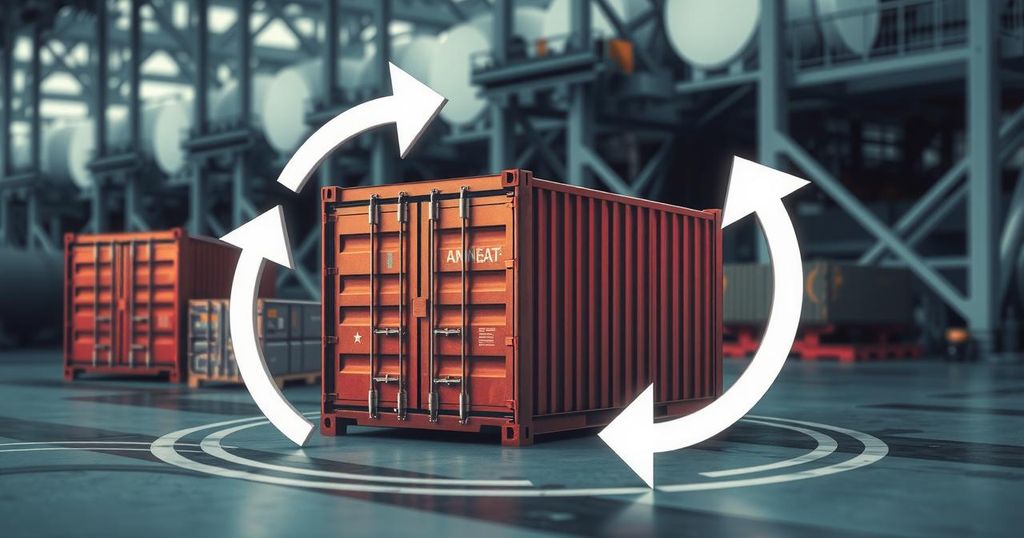Ecuador’s President Daniel Noboa announced a 27% tariff increase on Mexican imports, mirroring U.S. tariffs proposed by Trump. This move aims to protect local manufacturers and align with U.S. interests amidst strained diplomatic ties with Mexico following a controversial incident involving former Vice President Jorge Glas. Trade between Ecuador and Mexico remains minimal, prompting questions about the economic implications of the tariffs.
Ecuadorian President Daniel Noboa has announced an increase of 27% in tariffs on Mexican imports, reflecting policies reminiscent of those once proposed by former U.S. President Donald Trump. This decision aims to support local manufacturing, while also potentially aligning Noboa with interests in Washington, particularly following Trump’s announcement of a 25% tariff on Mexico, which has been temporarily halted for further negotiations. Noboa attended Trump’s inauguration, emphasizing a shared political perspective that he considers beneficial for Latin America.
This announcement arrives in the context of heightened diplomatic tensions between Ecuador and Mexico, particularly following a controversial incident involving the Ecuadorian police’s entry into the Mexican Embassy to apprehend former Vice President Jorge Glas. While Ecuador asserts that Glas faced criminal charges related to fraud, critics have labeled the police action as a violation of international law, leading to a severed diplomatic relationship between the two nations. Despite these tensions, trade between Ecuador and Mexico constitutes less than 1% of total Mexican exports, indicating limited economic impact from the newly imposed tariffs.
President Noboa, who comes from a notable banana-exporting family, is currently campaigning for his first full term following his election 18 months ago to complete the term of former President Guillermo Lasso. The backdrop of his tariff announcement intertwines local economic motivations with broader geopolitical strategies aimed at securing favorable relations with the United States.
The recent tariff increase by President Noboa of Ecuador is indicative of broader trends within international trade, particularly as nations navigate complex diplomatic landscapes. Noboa’s policy mirrors the protectionist stance taken by Trump, who sought to address issues such as illegal immigration and trade imbalances through tariffs. The incident involving former Vice President Jorge Glas further complicates Ecuador’s foreign relations, particularly with Mexico, demonstrating the intertwining of trade, diplomacy, and domestic political considerations. Additionally, the economic context reveals that despite significant political posturing, the actual trade impact may be minimal, as trade relations between Ecuador and Mexico remain limited.
In summary, President Noboa’s decision to raise tariffs on Mexican imports is a strategic move that seeks to bolster local manufacturing while simultaneously courting favor with the United States. This tariff announcement is set against a backdrop of strained relations with Mexico, highlighting the complex dynamics that influence international relations and trade policies. With minimal economic repercussions expected from this tariff increase, the political motivations driving Noboa’s actions are significantly pronounced, underscoring a careful balancing act among domestic and international interests.
Original Source: abcnews.go.com




